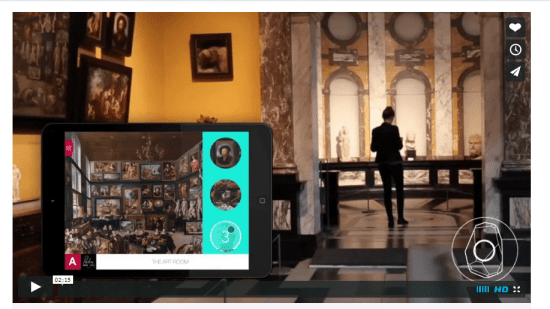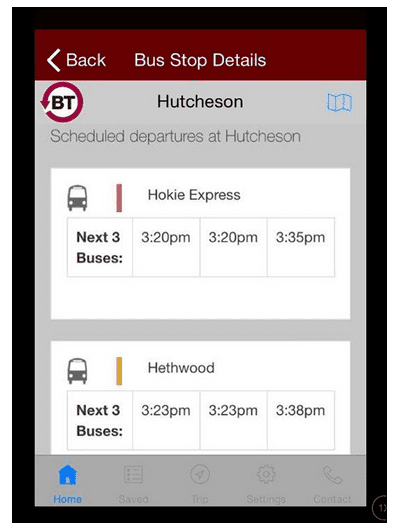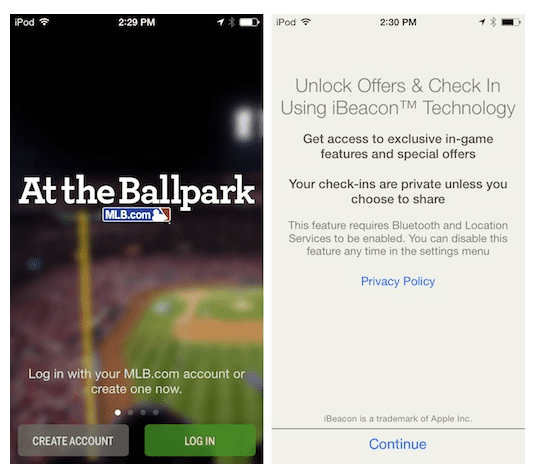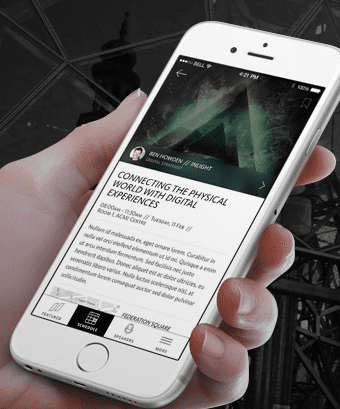Five examples of how retailers and brands are using iBeacons for marketing campaigns
Apple iBeacon gives great opportunities to develop innovative marketing campaigns, particularly for retailers. Beacons are small wireless sensors to connect the online with offline worlds. Their main purpose for a retailer is to enhance the customer experience by offering a new form of proximity marketing which can link to boosting product sales. Apple explains the the approach this way:
"Your iOS device can alert mobile apps when you approach or leave a location with an iBeacon.iBeacon uses a Bluetooth low energy signal, which iOS devices detect. In addition to monitoring location, an app can estimate your proximity to an iBeacon (for example, a display or checkout counter in a retail store)".
Let's now look at five interesting examples of how brands are using Apple iBeacons to create an advantage and added value for their customers.
1. Famous Antwerp Museum uses beacons as a Guide
The Rubens House, the famous Antwerp museum, now uses beacons as a personal guide. When visitors start their tour, they receive a tablet with an application that offers more information on the countless must-see exhibits. Everywhere in the museum beacons have been installed to stimulate interaction with the visitors. When visitors walk past these sensors, they automatically direct you towards the closest exhibit. With these sensors you also get more detailed information on your tablet. There is also an interactive quiz available that tells you more about the life and art of Peter Paul Rubens.

Source: https://vimeo.com/prophetsagency/ibeacon
2. Blacksburg Transit directs bus passengers with their app
Bus passengers on the Blacksburg Transit in Blacksburg, Virginia, are informed of the arrival times of the next few buses, either at the stop itself or online. Riders can download BT4U, an app based on content data software and beacon technology without any need of a Wi-Fi connection. To make it work, small sensors were installed in 47 company buses and at 50 bus stops. This app also directs riders to the correct bus stop via a personal notification or offers them to plan a cross-town bus route.
It’s the first publicly operated bus company in the US to use beacons to provide riders with real-time information. Employees of the Blacksburg Transit also collect ridership data with a view to upgrading the company’s service in the future.
More than 12,000 riders use this creative technology. BT4U will definitely improve the bus rider experience.

3. Major League Baseball finds the shortest queue to buy beer
In the United States ball parks are very popular and thousands of people visit them to cheer on their sporting idols. Major League Baseball has introduced Bluetooth Beacons in 28 of its 30 ball parks.
When sports fans come to MLB, they check in at games to receive special offers and content. These small devices, iBeacons, are installed at the fan entry and exit points of the ball park. They offer venue maps and game replays and they direct them to their seats and the shortest queue for buying beer and hot dogs.
Since the launch, fan check-ins have doubled as the app pushes merchandise coupons and seat upgrades. Beacon technology has succeeded in pushing the ball park experience to the next level.

4. A beacon-powered event
Pause Fest is an annual top digital event in Australia aimed at supporting and showcasing the best creative technology from Australia and all around the world. In February 2015 this organization installed 50 beacons throughout the festival grounds to deliver real-time event analytics and to enhance the festival experience.
Attendees were able to download the Pause Fest mobile app, which offered personalized notifications and content based on their proximity to the various festival locations. Content included welcome messages, keynote presentations, meal deals, party notifications and competitions. Beacon technology has boosted the customer experience and provided valuable festival analytics as well as an interesting navigation path through the event.

5. Retail Macy’s using location-based coupons
Macy’s, a store chain with flagship stores in New York and San Francisco, introduced iBeacons technology in combination with ShopKick, an iPhone app that offers location-based coupons. This technology recognizes consumers as they enter or pass one of their stores. Shoppers receive personalized deals, discounts and product recommendations. Even reward points can be generated for entering their stores or buying a product.
Due to this creative technology, our offline world is connecting consumers with digital offers and custom-tailored ads. There is still room for improvement, for instance in brand building strategy, which could be used to steer customers to specific brands in the store.
https://youtu.be/c3h0eKGfUfI
 Thanks to Steven Van Bellegham for sharing his advice and opinions in this post. Steven is a successful entrepreneur, academic, speaker, author, and expert on the transformation of customer relations and the future of customer-centric marketing. He currently runs his own coaching company, B-Conversational, and is a professor of interactive marketing at Vlerick Leuven Gent Management School. Previously, he was a managing partner at InSites Consulting, a market research and consulting firm. He is the author of When Digital Becomes Human, The Conversation Manager and The Conversation Company (Kogan Page). You can connect with him on LinkedIn or follow on Twitter.
Thanks to Steven Van Bellegham for sharing his advice and opinions in this post. Steven is a successful entrepreneur, academic, speaker, author, and expert on the transformation of customer relations and the future of customer-centric marketing. He currently runs his own coaching company, B-Conversational, and is a professor of interactive marketing at Vlerick Leuven Gent Management School. Previously, he was a managing partner at InSites Consulting, a market research and consulting firm. He is the author of When Digital Becomes Human, The Conversation Manager and The Conversation Company (Kogan Page). You can connect with him on LinkedIn or follow on Twitter.







 Thanks to
Thanks to 



